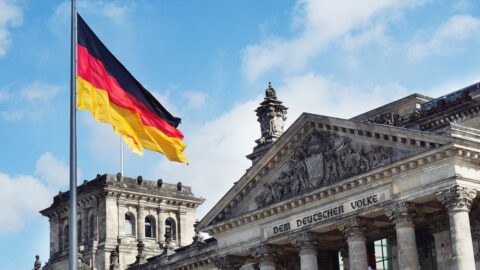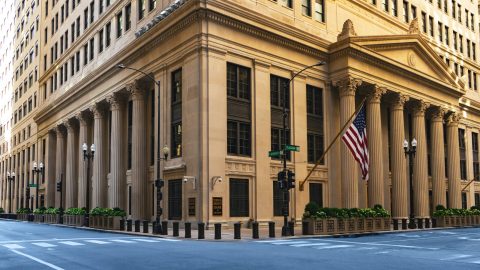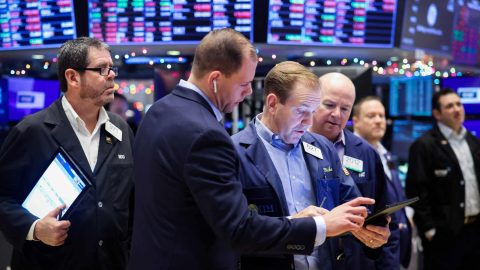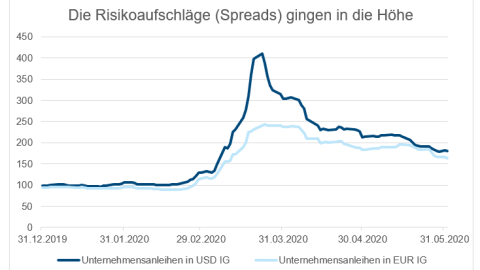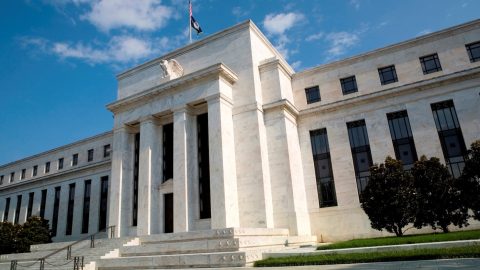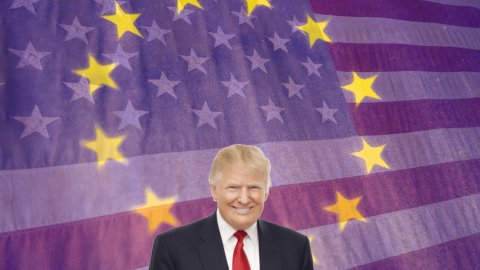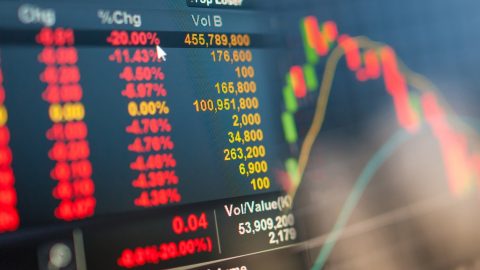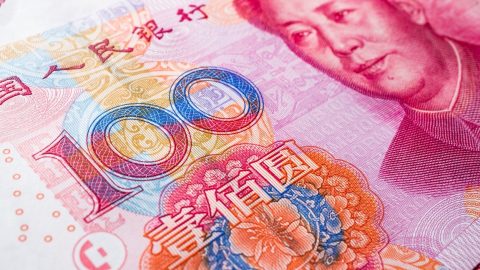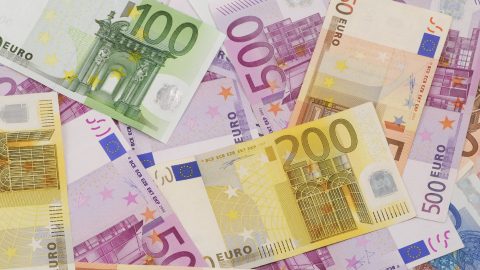Articles about “economy”
Strong US labor market report: just an outlier?
In September, the US labor market performed surprisingly well, with significantly more new jobs created than expected. This has pushed back concerns about an impending recession, which is positive for the financial markets. Was the strong labor market report just an outlier, or is the US Federal Reserve perhaps on the right track to achieving the hoped-for “soft landing”?
Risk of recession in Europe? Labor market data under the microscope
In recent weeks, there has been much discussion about the so-called Sahm Rule – a usually quite reliable recession indicator in the US that was triggered in August for the first time since the coronavirus crisis. There is no corresponding indicator for Europe so far, which raises the question: What is the risk of recession with regard to the European labor market?
Eastern Europe: Economies expected to outperform Euro Area
Weakening growth in the eurozone has been an issue on the markets for some time now. In the Central and Eastern European countries, however, this is largely a non-issue. According to forecasts, the region is also likely to grow faster than the eurozone this year. Private consumption in particular has recently proved to be a growth driver. However, the tense situation in German industry is causing concern.
Economic outlook: soft landing with risks attached
On the stock markets, the focus is shifting back to the downside risks. Nevertheless, there are still hopes that inflation will gradually fall and that there will be no recession. But how realistic are the hopes for this “soft landing” of the economy and how can investors position themselves in the current environment?
Market update: Economists see Germany economy regaining momentum
In football, things have been going well for the European Championship host country Germany recently with its place in the round of 16, but the economy has been in the doldrums in recent quarters. According to leading economists, this could now change. Positive signals from industry and private consumption indicate that the German economy is regaining momentum.
Favorable indicators: Soft landing on approach?
More and more indicators are pointing to good global growth. Even regions and sectors that had recently weakened are likely to return to growth. The soft landing after the sharp rise in inflation and the turnaround in interest rates could succeed. The decline in inflation is pausing at the same time, as yesterday’s US inflation data shows.
More Optimistic Outlook for German Economy among Experts
Stock market professionals are less pessimistic about the prospects for the German economy in the next six months. This is shown by the current economic barometer of the Center for European Economic Research (ZEW). The government also wants to get the economy moving again with additional relief measures.
What are the lasting results of the central bank meeting in Jackson Hole?
At the annual meeting of central bankers in Jackson Hole Federal Reserve Chair, Jerome Powell, summed up the uncertain environment as “navigating by the stars in a cloudy sky”. This relates, among other things, to the uncertainty about the level of the neutral interest rate, the lagged effect of key-lending rate hikes on economic growth and inflation, and the drivers of inflation.
Germany slides into technical recession: What does that mean?
The German economy slipped into a technical recession in the first quarter. What does this mean for the largest economy in the euro zone and what is a technical recession?
Conditionally positive economic news
Last week, positive economic data brought back some confidence. The global purchasing managers’ index, one of the most important survey-based economic reports, rose for the third time in a row. On the other hand, the latest inflation reports dampen hopes of a rapid decline in inflation without additional key rate hikes.
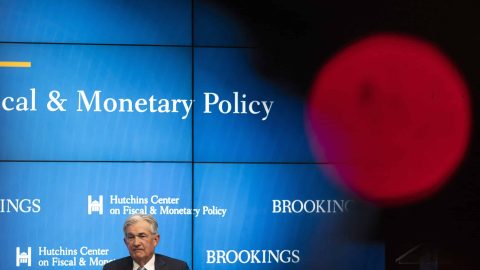
High uncertainty reduces potential for asset price increases
The environment for the financial markets remains highly uncertain. The further development of inflation and economic growth is not sufficiently foreseeable. This points to continued high fluctuations in asset prices.
Ceteris Paribus
The indications that the inflation peak will be exceeded are growing. If the relationship between inflation surprises (upside) and asset prices (downside) were to hold, that would be, all other things being equal, good news for the financial market.
Retailers hopeful for Black Friday and Cyber Week
On Black Friday and Cyber Monday, many retailers traditionally draw shoppers with discounts and special offers. In view of high inflation and rising interest rates and their potential impact, the financial markets are looking particularly eagerly to the two big holiday shopping days this year.
India: Narendra Modi – the prime minister as crisis winner?
A year ago India was one of the fastest growing economies in the world. Today the world looks completely different because of COVID-19. But no matter how bad the conditions in India are, Prime Minister Modi’s popularity is on the rise. Could he really emerge from the crisis as a profiteer?
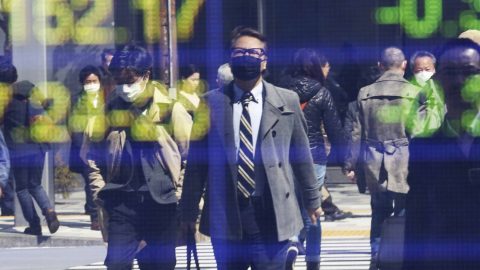
The long-term consequences of the corona pandemic – an analysis
The corona pandemic has plunged the world into an economic crisis. Erste AM chief economist Gerhard Winzer analyzes the 10 most important points about recovery, economic policy, inflation and the duration of the slump.
Is China back to work?
When do people in China return to work and how quickly will the economy recover from the coronavirus shock? Our senior fund manager Jenny Teng analyzes the current situation.
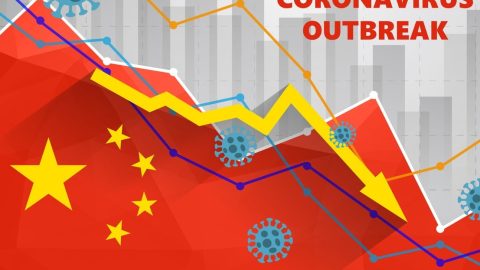
Coronavirus: epidemic in China disrupts recovery scenario
Coronavirus: The economy is increasingly affected by the virus crisis. Will China’s economy be able to withstand the pressure despite resistance? Analysis by Erste AM chief economist Gerhard Winzer.
Country report – Croatia
Croatia has finally received the long-awaited investment grade rating. What’s next? Our senior fund manager Ivana Kunstek answers the most important questions.
Stable prospects for Central and Eastern Europe
The countries of Central, Eastern and Southeastern Europe are among the most important economic growth markets for Europe. How are the prospects for next year?
USA still going strong
The US economy has developed very solidly since the financial crisis. The current expansion could soon become the longest in US history.
Currently the US remains strong but the key question is: Will it continue? Read on here!
Market remains cautious
The positive reaction to the agreement between the USA and China on not further escalating the trade conflict for the time being was only short-lived. Risky assets remain under pressure. A number of factors continue to burden the markets.

China’s future: long-term growth initiatives and dangerous asymmetries
The People’s Republic of China is one of the winners of globalisation – but the strong economic growth has also created asymmetries within the Chinese economy. Read more about how the “Made in China 2025”-strategy will help and what role the new silk road plays.

Brazil: fundamentally sound companies despite political uncertainties
In the current environment of global uncertainties in emerging markets due to idiosyncratic events in Turkey and Argentina, the trade conflict between the USA and China and with regard to the presidential election, late September was probably one of the most exciting times to visit Brazil. Find out more in our latest blog entry.

Russia back on growth path prior to the World Cup finals, but no reason for euphoria
At the kick-off for the World Cup finals on 14 June, Russia will move to the public limelight for four weeks. Time for a closer look at the Russian economy and equity market.
Croatia hits fever pitch
No, this is not an article on football, and any football reference is purely coincidental. This is an article on the football nation whose economy is (finally) showing positive trends and has (finally) been awarded a one-notch rating upgrade by two rating agencies, S&P and Fitch, this year. Only one notch away from the much-desired investment grade rating, the Croatian economy remains on sound footing before tackling its last challenge.
Protectionism: Risk of a trade war with the US?
The announcement by the US President, Donald Trump, to levy import tariffs on steel (25%) and aluminium (10%) has made waves. Can the favourable economic environment be toppled an will we see a trade war between the US and the EU?
Quo Vadis Italia? – The 2018 general election in Italy and its importance to the economy
The economic environment for Italy remains challenging. The fundamental problem is the low economic growth. Although the composition of the future government is still unclear, the party programs imply a persistent reform deadlock.
Investment stories in Latin America
The BBVA Latin American Local Markets Conference in London gave Christian Gaier, senior fund manager of government bonds of emerging markets, the chance to talk to local Latin American representatives. In our blog he shares some of the insights he gained and the narratives that may affect 2018.
Inflation worries burdening stock exchanges – part 2: the macro perspective
Equity indices have undergone a global correction in the past days. The Dow Jones index has shed more than 10% from its January high. What is the macro-economic reason for the correction?

Interview: “Future 2050 – the era of sustainability and smart machines”
Interview with Ulrich Eberl, one of the most renowned German-speaking scientific journalists and futurologists. Among the books he has published are “Zukunft 2050 – wie wir schon heute die Zukunft erfinden“ (“Future 2050 – how we are inventing the future today”) and “Smarte Maschinen – wie Künstliche Intelligenz unser Leben verändert“ (“Smart machines – how artificial intelligence changes our lives”).
Ten economic hypotheses for 2018
The current environment is very positive for the capital markets: strong growth, low inflation, supportive monetary policies, good earnings growth, and low volatilities, i.e. fluctuations. Also, the numerous risks have not had a significantly negative impact on prices. However, the phase of rising prices started as early as March 2009.
Capital markets outlook for 2018: Will the party hold on?
2017 is drawing to an end, and the bottom line is positive. The outcome is significantly better than we had expected. Since the financial crisis in 2008, the global economy has never expanded more quickly and especially concertedly than in 2017. Also, inflation has surprised on the downside, falling short yet again of the expectations held by central banks and analysts.
Renmimbi – a managed currency
Long enough we have heard about the depreciation of Chinese currency Renmimbi (RMB), but this year RMB has showed rather unusual movements.
Economic scenarios 2018
Q3 is drawing to its end. Traditionally, this heralds the development of a strategy for the next year, an important part of which is the creation of scenarios. On the basis of the status quo, we have drawn up three further different scenarios in this blog entry.
Which factors drive equity markets?
It is almost impossible to speak with fund managers and not address the economy or monetary policy. Why is that so? This blog entry will try to answer the question on the basis of data from the US equity market from 1950 onwards.
Germany: is the economy about to face a hot summer?
The IFO business climate index calculated by the Munich-based IFO Institute is regarded as the most important German economic indicator. At 115.1, the value released for June last week was the highest since the launch in January 1991. It was also clearly above the value that had been expected by the financial analysts on average. The signs for substantial economic growth in Germany seem favourable.

A masterpiece
The US central bank Fed increased the Fed funds rate last Wednesday. The risky asset markets reacted to the move with an increase. At the same time, the US dollar depreciated. How can that be explained?

Default risk preferred
Equities have recovered from their beginning-of-year slump, and bonds, especially corporate and emerging markets, have recorded impressive gains. The loosening of the monetary environment in China and the continuation of the loose monetary policy in the USA have reduced the risk aversion of investors. In terms of asset allocation, we generally prefer default risk. Equities […]
Fed supports markets
The US central bank signalled the continuation of its loose monetary policy at its FOMC meeting on 27 April. This is remarkable given that along with the short-term stabilisation of the Chinese economy, this Fed policy is one of the most important reasons for the price rises of risky assets since February.
Turkey and the feeling of summer time sadness
We are almost approaching the end of the summer but it looks like we are back to April 2015 in Turkey. The election outcome and aftermath did not work as politicians had desired and the efforts to form a government have failed so far.
China weighs heavy on commodity prices and production
Global GDP growth has probably only increased marginally in Q2 after the very weak Q1. Economic activity has thus remained disappointingly weak on a global scale.
High noon in Greece and the trend to volatility
Summary: The economic recovery in the developed economies is supported by the very expansive monetary policies, lower austerity pressure on the government front and among banks, and the fallen oil price. Growth rates remain moderate. In the emerging markets we can see signs of low-level stabilisation at best. The possible default of Greece, excessive interest […]
China – the biggest economy in the world
The new normal The importance of China for the global economic and financial system continues to grow at a rapid pace. Last year the country set a new milestone by becoming the world’s biggest economy. The total value of goods and services produced in a year exceeds that of the United States. Thus, at 30% […]
Macro data: Dynamics down
The dynamics of the economy and the markets have declined. Global economic growth is down on a quarter-on-quarter basis, the two most important trends of the past months (appreciation of the US dollar and falling oil price) have come to a halt, inflation is not falling anymore, and the US Fed has put a damper […]
Boon and bane
The driving topics on the financial markets are the stabilisation of the oil price, mixed economic indicators globally vs. positive economic indicators for the Eurozone, the temporary decline in escalation risk, and the expansive central bank policies.
What has become of the “oil x 20” rule?
The oil and gas sector is the backbone of the Russian economy. It contributes roughly a quarter to the Russian GDP, and it accounts for almost two thirds of exports. Oil and gas companies represent almost 60% of the market capitalisation of the Moscow stock exchange. It therefore makes sense to analyse the performance of […]
The effects of the ECB policy
Since the cutting of key-lending rates to almost zero in the Eurozone did not suffice to keep the inflation expectations at their long-term target of slightly below 2%, the ECB Council decided in January to expand the central bank money supply until the accomplishment of the target was foreseeable. The possible effect on the financial […]
Light and shadow
The environment has become a bit brighter in the past weeks. In addition to the improvement of the economic environment in the Eurozone and Japan, more and more central banks loosened their monetary policies. For example, on 12 February the central bank of Sweden (Riksbank) surprisingly cut its key-lending rate to -0.1% and announced to […]




